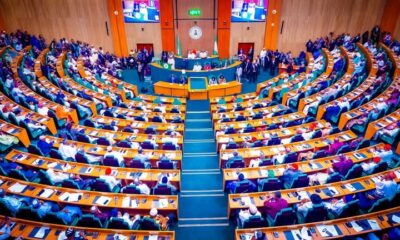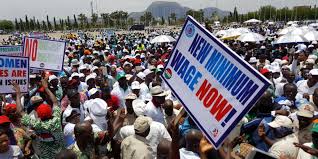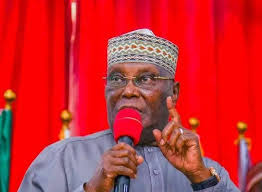Business
Stable Exchange Rate, Best Choice For Nigeria – Emefiele
The Central Bank of Nigeria (CBN) governor, Mr Godwin Emefiele, says maintaining stable exchange rate to avoid depreciation of the Naira is better than building foreign reserve buffers.
Emefiele told newsmen yesterday that this was part of the outcome of the Nigerian delegation’s meetings with investors and institutions at the International Monetary Fund (IMF) and World Bank Group (WBG) annual meetings in Bali.
He said that all frontiers and developing markets have suffered not just depreciation, but had also lost reserves.
“We are very conscious of the need to build buffers but unfortunately I must say that we are in the period where it will be difficult to talk about building reserve buffers.
“We can only build reserve buffers if we want to hold on to the reserve and then allow the currency to go, and wherever it goes is something else.
“So it is a choice we have to make and at this time the choice for Nigeria is to maintain a stable exchange rate so that businesses can plan and we do not create problems in the banking system assets.”
According to him, like other emerging market nations, Nigeria has also lost reserves but only marginally because it had managed to sustain stability in its foreign exchange market.
The CBN governor said that the IMF and the World Bank advised that nations should build country specific policies and fiscal and structural reforms that would boost economic growth.
Minister of Finance, Mrs Zainab Ahmed, said the World Bank’s Human Capital Development Index (HCI) ranking, which placed Nigeria low at 44 per cent on stunting, was disheartening and depressing.
She, however, said that the Federal Government saw the rating as a wake-up call.
“We admit that this pervasive action was due to long years of under-investment in human capital, which we have before now realised and for which we have been addressing.
“Apart from major policy actions, some decisive actions are being taken to address the situation.”
According to her, the delegation held meetings with the two rating agencies-Fitch and Moody’s and presented to them the summary and synopsis of the recent economic and financial developments in Nigeria.
She added that it was an opportunity for the rating agencies to be able to objectively evaluate Nigeria’s credit.
Ahmed said she also met the IMF Managing Director, Ms Christine Lagarde and discussed Nigeria’s economy in view of the 2019 general elections.
She assured Lagarde that the election year would not pose any threat to the nation’s economic prospects.
Minister of Budget and National Planning, Mr Udoma Udo Udoma, said that to improve HCI, the nation had improved budgetary allocation to health and education.
He said that allocation to education moved from N22.5 billion in 2015 to N102.9 billion in 2018.
He added that allocation to health was reviewed from N26.6 billion in 2015 to N86.49 billion in 2018.
He said also that N55.19 billion had been added to the health budget in 2018 through the National Health Act.
Business
Bayelsa Begins EIA On 60MW Power Plant

The Bayelsa Electricity Company Ltd, in collaboration with the Federal Ministry of Environment, on Friday, commenced the Environmental Impact Assessment (EIA) for the proposed 60-megawatt (MW) power plant.
The Tide’s source reports that the power plant project, led by the Bayelsa State Government, is in Elebele, on the outskirts of Yenagoa, the state capital.
The source also reports that the State Governor, Douye Diri, had announced plans to establish an independent power project to end the state’s reliance on the national grid and provide an uninterrupted power supply across Bayelsa.
The Director of Operations at the Bayelsa Electricity Company Ltd., Steve Bubagha Jnr., conducted the Minister of Environment, Balarabe Lawal, and his team around the project site.
Mr. Bubagha explained that the company planned to install a 60MW “plug and play” gas-fired turbine that would receive gas feed from the Oando gas manifold in Elebele.
He said the land area for the project is approximately 5.8 hectares, with 2.1 hectares currently being used.
“The Independent Power Plant is officially known as the ‘Yenagoa Power Project. This is a ‘Plug and Play’ Gas Turbine.
“What we mean by ‘plug and play’ is that the turbine is already set to be installed upon arrival from the manufacturers.
“We are only working on other components, so the turbine should be running in less than two years, or at most, in two years”, Bubagha explained.
Following the site visit, the environment minister, represented by Adimchinobi Okereke, emphasised that the purpose of the visit was to ensure the EIA process adhered to standard guidelines before granting final approval to the project.
He lauded the state government for initiating the project, noting that once completed, it would benefit Bayelsa and contribute to solving Nigeria’s power supply challenges.
Azibola Inegite, a professor and Dean of the Faculty of Science at Niger Delta University, and the EIA consultant for the project, assured that international best practices would be followed in conducting the EIA.
He emphasised that the EIA was essential for the successful execution of impactful land and environment-related projects.
On his part, the technical adviser on Print Media/Public Affairs to Governor Diri, Wisdom Ikuli, commended the Governor for his vision in executing the project.
He stated that the 60MW power plant would help reduce the state’s frequent power outages and boost business growth, thereby accelerating industrialisation.
A key part of the minister’s visit was the “Stakeholders Engagement Scoping Workshop for Environmental Impact Assessment of Proposed Gas Powered Plant and Gas Delivery Pipeline in Bayelsa State”.
The workshop brought together stakeholders from Elebele, whoch include the host community, and Kpansia, an impacted community in Yenagoa Local Government Area.
Business
Firm Unveils Solutions To Oil Logistics Challenges

A firm, Fortune Global Shipping and Logistics Limited, said it has concluded plans to unveil an excellent and cost-effective logistics solution for oil and gas logistics, project cargo, customs clearance, consolidation, and construction, among others, in Lagos State.
Announcing this in a statement on Friday, the company said the initiative would be unveiled during the 2025 Sub-Saharan Africa International Petroleum Exhibition and Conference.
It stated that the event is billed to take place in Lagos this week.
SAIPEC is an annual global event which focuses on harnessing a sustainable African energy industry through partnerships.
Fortune Global explained that the exhibition promises to engage with other key industry stakeholders, decision-makers, and experts across Sub-Saharan Africa’s energy supply and value chain.
“We invite you to experience more and find out about Fortune Global’s latest innovations in oil and gas logistics. Connect with Fortune Global Shipping and Logistics Limited at the Exhibition Booth N21, Eko Convention Centre, in Lagos”, the statement stated.
Business
Nigeria, Still Africa’s Largest Economy – World Bank

Nigeria remains the largest economy in Africa going by Gross Domestic Product (GDP), in spite of the challenges faced by yhe country’s private sector.
World Bank’s Country Director for Nigeria, Dr. Ndiame Diop, who confirmed this at the Country Private Sector Diagnostic (CPSD) and Stakeholder Engagement in Abuja, Friday, said while Nigeria receives far less Foreign Direct Investment (FDI) than its potential warrants, especially in comparison to countries like Indonesia and South Africa, it continues to hold its position as Africa’s biggest economy.
He said the CPSD report, set to be released in the coming weeks, will reveal the impact of private sector constraints on economic growth.
Diop noted that if targeted actions were taken to remove these obstacles, Nigeria’s economic potential would be significantly enhanced.
He explained that the current macroeconomic reforms have created a favourable environment for such changes.
He cited the country’s recent economic stabilization measures, particularly exchange rate market adjustments and improved access to foreign exchange, as critical steps that have already enhanced investment conditions.
The Country Director outlined four key sectors where strategic reforms could unlock massive investment and job creation.
He stayed that in the Information Communication Technology (ICT) sector, investment opportunities worth up to $4 billion could be realized, potentially creating more than 200,000 jobs.
In agribusiness, reforms could unlock $6 billion in investment and generate over 275,000 jobs.
The solar photovoltaic (PV) industry holds the potential for $8.5 billion in investment and more than 129,000 jobs, while the pharmaceutical sector could attract $1.6 billion and create more than 30,000 to 40,000 jobs.
For the ICT sector, he identified the high, unpredictable, and inconsistent right-of-way fees, levies, and informal charges, comprising 30 to 70 per cent of broadband rollout costs, as a major barrier.
According to him, addressing these regulatory inconsistencies would be a game-changer for broadband expansion.
He acknowledged that the National Economic Council has recognized this issue and that progress is being made through a World Bank-supported initiative.
He also noted challenges such as vandalism, limited financing for rural broadband expansion, and the need for competitive access to wholesale fiber.
Dr. Diop further noted that efforts are underway in collaboration with government agencies to resolve these issues, and the World Bank, the International Finance Corporation (IFC), and private investors are prepared to support broadband infrastructure development.
On solar power, Diop described Nigeria’s energy sector as difficult but noted that renewable energy access, particularly solar PV, has been a bright spot.
He explained that private sector investment in renewable energy has historically been hindered by high costs and unviable tariffs.
However, blended finance mechanisms supported by the World Bank and IFC have helped bridge this gap, making off-grid solutions more viable.
He noted the DES project, which aims to connect 17.5 million households and businesses to solar power, as evidence of growing private sector interest.
While the solar industry is expanding, he stressed that reforms to improve Nigeria’s grid electricity supply remain crucial for industrialization.
On her part, the Regional Director for Central Africa and Anglophone West Africa at the IFC, Dr. Dahlia Khalifa, stressed the importance of consistency in regulatory policies, particularly in customs duties and revenue agency fees.
She noted that unpredictability discourages private sector investment, as businesses rely on stable regulatory environments for strategic planning.
-
News4 days ago
OBJ’s ADC, Jemitola, Slumps, Dies At IBB Golf Club
-

 Featured3 days ago
Featured3 days agoReps Propose Creation of 31 New States
-

 Editorial11 hours ago
Editorial11 hours agoNew Federal Varsity In Ogoni
-

 News9 hours ago
News9 hours agoN70,000 Minimum Wage States’ Salaries Rise By 90% To N3.8trn
-
Nation3 days ago
Group Plans Pilot Farm Programme For 50 Schools
-

 Oil & Energy15 hours ago
Oil & Energy15 hours agoWAPCo Commences Four-Week Pipeline Maintenance
-

 Business11 hours ago
Business11 hours agoMAN Warns Against Electricity Tariff Hike
-

 News9 hours ago
News9 hours ago2025 Budgets: I Hope Snake, Monkey Won’t Swallow This One-Atiku

